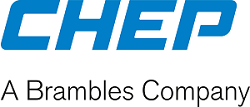Optimizing your battery packaging will help you deliver your business goals.
iCrowdNewswire
Aug 26, 2021

Li-Ion battery production is expanding rapidly, but so are the risks and uncertainties in the new electric vehicle (EV) supply chain. Thinking about more robust, reliable, and sustainable packaging at the design phase can save suppliers and OEMs significant time and cost later.
The market for electric vehicles is expected to have annual compound growth rates of 20% over the next decade. As we’ve seen with the recent pandemic, exponential growth ramps up very quickly, and this has led to a huge investment in EV battery production – with global capacity aiming to increase from 475 GWh in 2020 to more than 2,850 GWh by 20301.
The holy grail is to get battery prices down below $100 per KWh, which would bring the cost of EVs in parity with internal combustion engine (ICE) vehicles. This is seen as key to achieving the ambitious EV sales targets driven by regulators and consumers. However, even the most efficient Li-Ion battery producer, Tesla, has battery pack costs of $187 per KWh vs the industry average of $246 per KWH2.
The pressure to reduce costs by OEMs will be passed on down the battery manufacturers. However, this new battery supply chain is very different from the existing mature one that has evolved over multiple generations. There are very different risks, very different suppliers, and very different factors that will affect their financial stability.
One of these often-missed critical factors is the packaging used for transporting Li-Ion cells, modules, and battery packs.
EV batteries are highly vulnerable to dangerous leakage, thermal runaway, and loss of quality during transportation. This means the packaging must be UN-certified or conform to the appropriate PHMSA regulations and meet far higher requirements than for standard car parts. Even one-way packaging for a full battery pack can cost between $300-500, around 7% of the total battery cost3.
However one-way packaging gives far less protection against many of the factors that can affect battery quality during transportation. Moisture on sea journeys can weaken the cardboard, it’s vulnerable to stacking damage, and it needs more handling (which adds risk) as it’s not suited to automated production lines. All these additional liabilities can have serious impacts on profitability, through the cost of damage or loss of quality in transit.
There are many other benefits that can be delivered through optimal battery packaging. Designing the cells and modules around a UN-certified reusable standardized container can drive efficiency through a much higher packing density. In addition, a greater stacking ability that can allow stacking three-high rather than two-high for one-way packaging, more can be packed into a sea container. These two factors alone lead to far better transport utilization, reduced costs, and improved sustainability.
Sustainability is a major factor for the supply chain, and is increasingly the target for more ambitious regulations. Cardboard waste creates management and disposal costs that will be passed back to the suppliers, as well as adding to their carbon footprint.
Finally, there is the challenge of ensuring the continuous correct packaging supply that needs to quickly adapt to sudden ramp-ups in demand.
All these factors explain the need for an EV packaging partner early in the battery design process which can be vital to delivering and protecting profit margins.
CHEP is the leading supply chain partner for Li-Ion battery packaging and transportation and use its global scale and experience of working with the automotive industry to create reusable solutions that reduce cost, risk, and waste.
CHEP provides UN-Certified containers that are standardised and optimised for the automotive supply chain and meet all the relevant requirements and certifications for dangerous goods transportation. And because these assets are built to be shared and reused, these containers give far more protection to vulnerable (and valuable) Li-Ion battery components. In addition, CHEP takes care of all the repair, maintenance, and supply – so the customers always have the right packaging at the quality they need, whatever the changes in demand.
CHEP also has the expertise to help you fully optimise your complete packaging solution to reduce cost and waste. By using the latest Computer Aided Design software, we can quickly calculate the optimum pack density and also design custom inserts if needed. We can also offer a tracking solution that provides complete visibility of the supply chain, providing data and insights on both the condition and location of your parts in real-time.
CHEP have been leading the efforts to collaborate across the industry so that we can address the challenges with the battery supply chain. Since 2018 CHEP has been running the respected ‘Battery In Focus’ forums where we bring together experts from all areas connected to EV battery production, transport, use and disposal.
“Lithium-Ion battery producers face new risks and liabilities in their supply chain. Bringing CHEP in as a supply chain partner will help them move more batteries for less cost, uncertainty and waste.” Murray Gilder, VP CHEP Automotive.
CHEP is the world’s largest share and reuse pooling company and rated as one of the most sustainable companies globally. CHEP has been a global leader in reducing costs and increasing sustainability through reusable automotive packaging solutions for over 30 years, working with OEMs and Tier1s across all continents.
[1] Footnote 1: Automotive Logistics
https://www.automotivelogistics.media/electric-vehicles/electric-vehicle-battery-supply-chain-analysis-2021-how-lithium-ion-battery-demand-and-production-are-reshaping-the-automotive-industry/41924.article
[2] Footnote 2: Cairn ERA battery report via:
Tesla (TSLA) leads battery cell cost by wide margin, according to new report
[3] Footnote 3: [Insights from interviews with external subject matter experts]
Contact Information:
[email protected]
+44 7852586195


